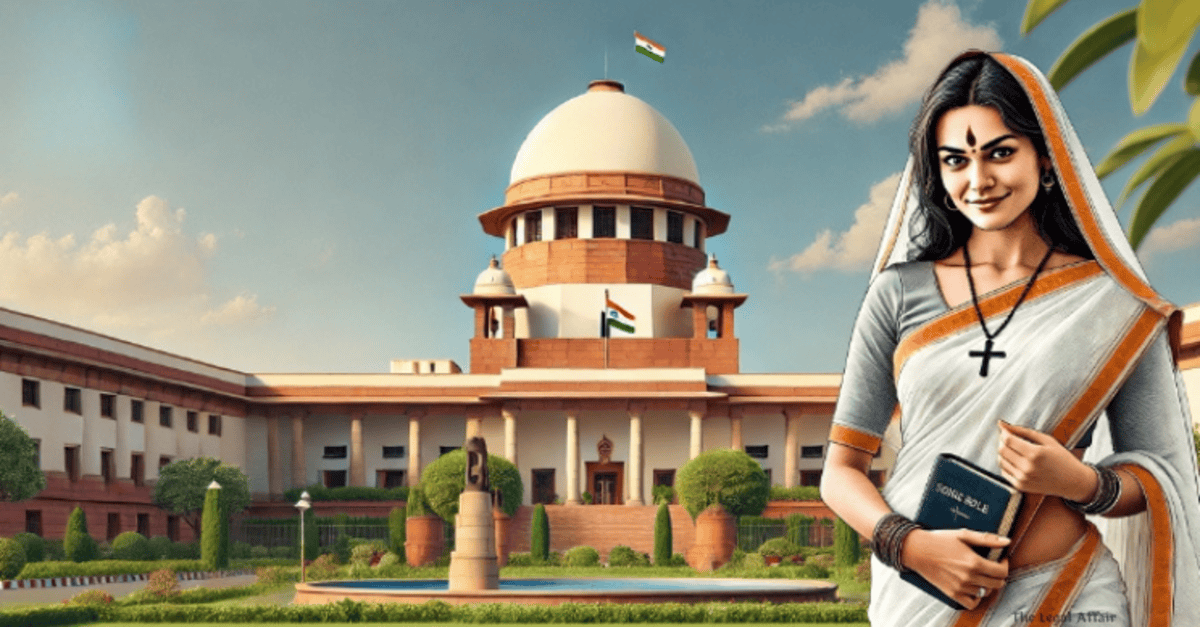INTRODUCTION
A point repeatedly made or said about the case of India has to do with the issue of religious conversion. One of the legal principle doctrines surrounding this issue was the doctrine of “eclipse of caste,” holding the view that when a member of a caste-based religion converts to a religion which refuses to recognize the caste system, his or her caste status gets “eclipsed,” but revival of caste status is restored upon reconversion to one’s original religion. This legal doctrine finds reference in a few precedents, primarily where people converted to Christianity from Hinduism and, consequently, sought restitution in integrum of their caste identity. The Supreme Court recently answered this question before it, where a woman born a Christian claimed that she was a Scheduled Caste (SC) after alleged reconversion to Hinduism.
BACKGROUND
Facts however revealed that the appellant was born from a Hindu father and a Christian mother, both of whom later converted to Hinduism. Applicant for SC certificate when applied for employment in Puducherry and stated being by birth a Hindu but become follower of Christianity.
She also contended that the caste being a Hindu was dormant and not defunct even after the rite of baptism; this has to come alive only in the eventuality of her turning back again to be a Hindu. Relying on Kailash Sonkar v. Maya Devi, 1984 she submitted that, in the Hindu religion caste is birth-based and would not lose its identity post-conversion. It remains as if dead and can, therefore come into life when an individual resorts to turning again to become a Hindu again.
But yet she was unable to produce any actual evidence which may prove that she was reconversed. The Court put further that Christianity has belief not in the caste, therefore no one can benefit from the theory of caste eclipse.
KEY ASPECTS
1.Doctrine of Eclipse of Caste: The court held that the doctrine of eclipse of caste is applicable where a person following a caste religion like Hinduism apostatizes and turns into an apostate follower of the caste-less religion of Christians. In this case the caste remains eclipsed, while the person resumes his status of caste when he is readmitted to Hinduism by admission in his community.
Of course, that excludes those born into religions that do not recognize caste such as Christianity.
- Christianity and Caste : Christianity does not recognize caste differences. Hence, a person born to Christianity cannot claim any caste identity under Hinduism. Court held that when a person converts, his caste is lost, and there is no machinery under Christianity to make him revive it.
- Lack of proof of reconversion: The Appellant has not at all brought any evidence related to reconversion. It is also not present with regard to the ceremony and public declaration. No document available from the Arya Samaj or any institution which accepts such conversion. The Court has also emphasized that the finding of facts was there where the Appellant continued his Christianity.
- Precedents Misapplied: It is seen that the appellant was wrongly placing reliance on decisions in Kailash Sonkar v. Maya Devi where the persons who were born Hindus turn Christian subsequently. That view of the Court was that the said decisions were distinguishable as it deals with people whose caste status after their conversion goes into abeyance. In this case, the appellant being a Christian by birth cannot be traced with any caste under the Hindu law.
CONCLUSION
The Supreme Court dismissed the appeal of the appellant clarifying that the doctrine of eclipse of caste is not applicable to those born in religions that do not believe in caste, such as Christianity. The appellant’s claim to being a member of the caste group under Hinduism was turned down mainly because Christianity did not believe in caste discrimination and because she could not prove reconversion to Hinduism. It drives home the point that caste goes with a birth within a caste religion and the legal acknowledgement of this caste status depends on conformance to the tenets of this original religion which in appellant’s case were Christianity.
“PRIME LEGAL is a full-service law firm that has won a National Award and has more than 20 years of experience in an array of sectors and practice areas. Prime legal falls into the category of best law firm, best lawyer, best family lawyer, best divorce lawyer, best divorce law firm, best criminal lawyer, best criminal law firm, best consumer lawyer, best civil lawyer.”
WRITTEN BY RICHA PANDEY


